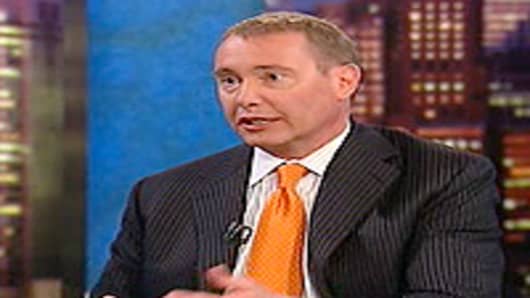The municipal bond market will go down by "at least 15- to- 20 percent" in the long-term, Jeffrey Gundlach, CEO and CIO of the asset management firm DoubleLine Capital, told CNBC on Wednesday.
"The fear factor here is going to be palpable. People who own munis tend to own them for the tax benefit and they tend to own most of their assets, if not all of their assets, in the muni asset class. So when they get to fall, they get nervous," Gundlach said.
"You got a history of low defaults [within the muni market], which is comforting. But that kind of sounds like what subprime sounded like back in 2006. You had a AAA market that had never traded below par, the fundamentals were getting worse and it was owned for a technical reason," he added.
Gundlach pointed out that he is "agnostic" on whether there will be a muni crash, but says the fundamentals are bad and munis will go lower.
"People are hungry for any kind of yield that starts to approach a decent investment return. For now, high-yield will probably give a decent return because defaults will be low, but you probably won't outperform Treasuries in high-yield, in my view," he said.
Wrong conclusions are being drawn on high-yield price volatility, added Gundlach.
"The volatility of high-yield bonds is a lot more like the 20-year Treasury. It has a standard deviation, persistently, of twelve. The Treasuries that they are comparing it to have a standard deviation, persistently, of five [5- year Treasury]. So you really can't compare high-yield to the total basket of Treasuries. You need to compare it to the long Treasuries," he said.
High-yield bonds are priced for the reality of low defaults, Gundlach added. "It's nice for now that defaults are low 'cause they are. For the last twelve months defaults on high-yield bonds are under 1 percent—they were back in double digits just two years ago."
"I'm not saying high-yield is about to collapse, because I really believe the defaults will be low for a while. But the stuff that was issued in 2009, that is not good quality, nor was 2010, and it takes about 3, 4 years," he concluded.
Follow Strategy Session on Twitter: @CNBCStrategy
Watch CNBC's "The Strategy Session" weekdays at Noon ET.



